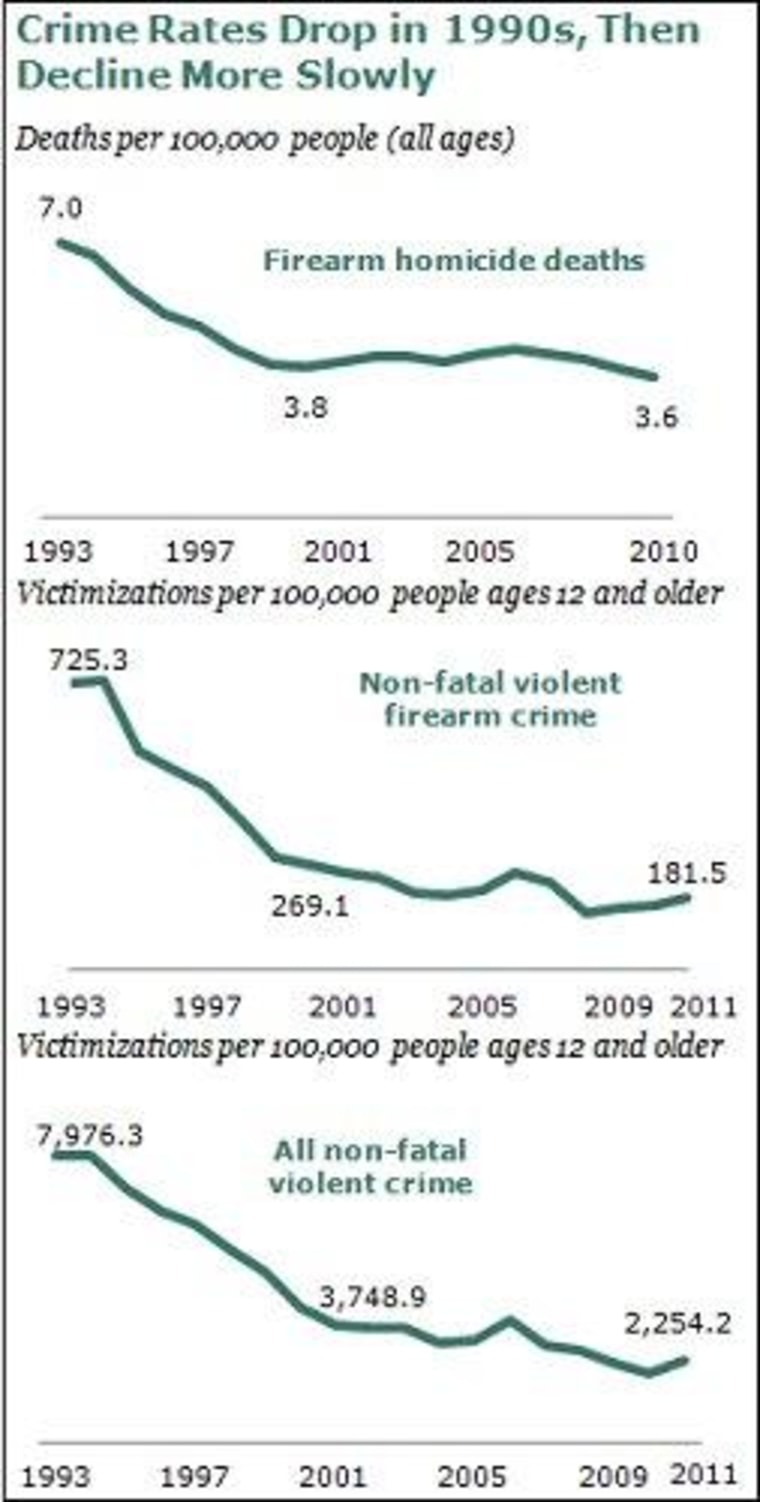Pew Research published an interesting report yesterday, noting a steep decline in gun deaths and non-fatal violent gun crimes over the last 20 years. The bulk of the progress came in the 1990s, with more modest declines since, but it's clear that gun violence is vastly improved over 1993 rates.
And Pew Research isn't the only source pointing to progress. National Review yesterday touted this new Justice Department report (pdf) that echoes the same findings. Firearm-related homicides and non-fatal firearm crimes are significantly better than they were two decades ago. What's more, the DOJ report notes that the improvements are across the board -- they apply to every region, ethnicity, and gender.
The next question, though, is whether this is good enough.
For National Review's Charles C. W. Cooke, the good news speaks for itself, and the data "makes embarrassing reading for those who spend their time trying to make it appear as if America is in the middle of a gun-crime wave." Cooke added, "And those screaming '...but Sandy Hook!' will no doubt be pleased to know that school shootings, too, are down 33 percent since 1993."
To be sure, there's no point in denying the progress. Despite far too many horrific massacres that shocked the conscience of the nation in recent years, gun violence is, without a doubt, better than it was 20 years ago. We can have a conversation about how this happened, and we can note that gun-related suicides are generally overlooked in these studies, but everyone involved in the debate over guns can feel good about how far we've come.
But to suggest that progress is evidence of a problem that's been solved is wrong. Greg Sargent noted this morning, for example, that 11,000 Americans are killed by guns every year.
And how one chooses to respond to statistics like these is apparently a matter of interpretation. For some on the right, the argument seems to be, "But look at how much better things are than 20 years ago!" For the left, the argument is, "We still have far more gun deaths than any industrialized democracy on the planet, and with some sensible safety measures, we can build on the recent progress and save more lives."
It's a debate, in other words, between "better" and "not good enough."
